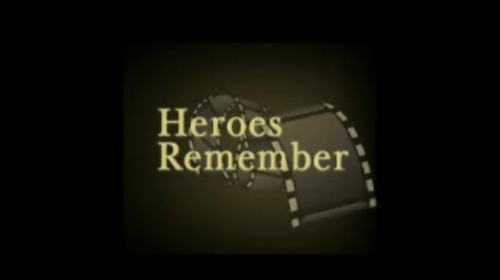Sixty eight answered roll call
First World War Audio Archive
Sixty eight answered roll call
Transcript
Soldier posing with his rifle.
Soldiers running out from trenches.
Because we had, we lost... 801 went over, 68 answered the rollCrossing Beaumoni-Hamel
Machine gun crew firing.
Artillery being fired.
call the next morning. Over 700. Three hundred and sixty-four,Soldiers running over a hill and crossing barbed wire.
Soldiers jumping over a trench as they attack.
I believe it was, was killed, 95 missing, and the rest wounded.Photograph of a helmet and the hand of a dead soldier.
Wounded soldier being helped by another.
The empire lost, I suppose, probably couple of millions of people And Dardanelles was a failure. They sent us out there and thereSoldiers crossing a shallow body of water on camel and horse and carriage.
was thousands and thousands of New Zealanders and Australians andSoldiers walking by artillery crew.
English that died out there, and they had to leave it. I don’t know why they sent we there, we were a picked regiment, you know. We didn’t have... not too many of us 25. Hundreds, we hadSoldiers walking on a hill-side trail.
hundreds around 20 and 18 and that. No, very few over 25.Men building a sandbag structure.
And we could march with anything at all,Marching through a town.
and no regiment could keep up with us.Description
Mr. Dunn reflects on the human cost of war, referencing his areas of action, and questions the deployment of the Royal Newfoundland Regiment to Gallipoli.
Ronald Dunn
Ronald Dunn was born in Bonavista, Newfoundland on May 31, 1897. He was a fisherman at the time of his enlistment, December 22, 1914, when he joined the Royal Newfoundland Regiment as a gunner. Mr. Dunn served in England, Egypt, and finally saw action in Gallipoli. He fell ill with dysentery and was sent back to England to convalesce. He was then deployed to France where he participated in the battles at Beaumont-Hamel and the Somme. He sustained two bullet wounds to his right thigh on July 1, 1916, and was given a medical discharge on October 22, 1917. After returning home, he married Elizabeth House, and had three children. Mr. Dunn was the president of the Bonavista Branch of the Great War Veterans’ Association whose membership he helped build to 150 strong. Mr. Dunn died in Golden Heights Manor, Bonavista, on September 8, 1994.
Meta Data
- Medium:
- Video
- Owner:
- Veterans Affairs Canada
- Duration:
- 1:19
- Person Interviewed:
- Ronald Dunn
- War, Conflict or Mission:
- First World War
- Location/Theatre:
- France
- Battle/Campaign:
- Beaumont-Hamel
- Branch:
- Army
- Units/Ship:
- Royal Newfoundland Regiment
- Rank:
- Gunner
- Occupation:
- Infantryman
Attestation
Related Videos
- Date modified:



